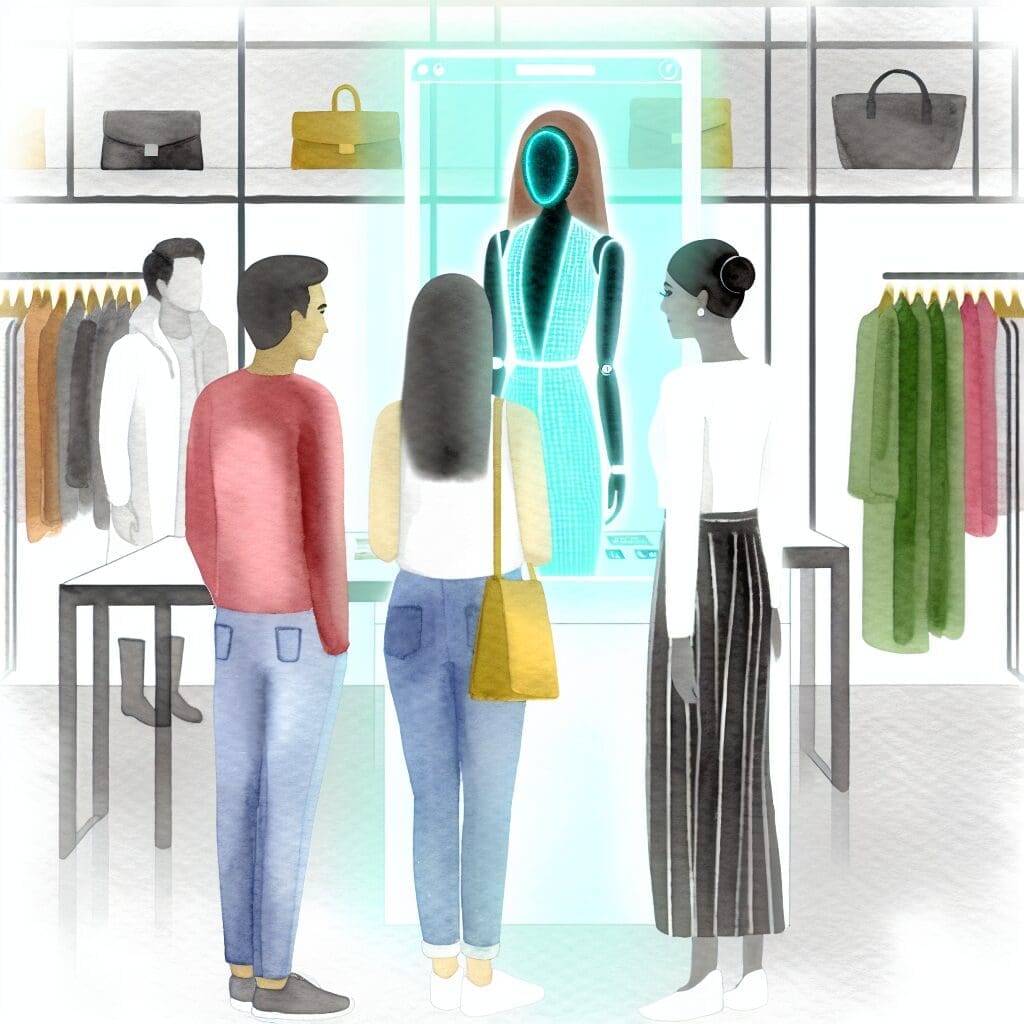The fashion industry, known for its creativity and rapid evolution, is currently experiencing a significant transformation driven by technology. As we delve deeper into the digital age, innovations such as AI-powered shopping assistants are not only enhancing consumer experiences but also reshaping the entire retail landscape. This shift towards digital integration is particularly exciting for tech-savvy consumers who seek personalized and efficient shopping experiences.
The Dawn of AI in Fashion Retail
In recent years, artificial intelligence has made substantial inroads into various sectors, and fashion retail is no exception. From inventory management to customer service, AI is being leveraged to optimize operations and enhance customer engagement. One of the most noteworthy advancements is the introduction of AI shopping assistants, such as ChatGPT’s new shopping feature, which is designed to tailor recommendations based on individual preferences.
Enhancing the Consumer Experience
AI shopping assistants are revolutionizing how consumers interact with fashion brands. By analyzing data from past purchases, browsing history, and even social media activity, these intelligent systems can curate personalized shopping experiences. For instance, imagine a consumer searching for a summer dress; the AI assistant can suggest styles, colors, and brands that align with the consumer’s unique taste, making the shopping experience not only easier but significantly more enjoyable.
According to a study by McKinsey, personalized shopping experiences can increase customer satisfaction by 20% and drive conversion rates by up to 15% (source: McKinsey & Company). This level of personalization is a game-changer in a competitive market where customer loyalty is paramount.
Streamlining the Shopping Process
Beyond enhancing user experience, AI is also streamlining the shopping process in unprecedented ways. Automated systems can manage inventory more efficiently, ensuring that popular items are always in stock and reducing the likelihood of overproduction. This not only benefits retailers by optimizing their supply chain but also supports sustainability efforts within the fashion industry.
Moreover, AI can assist in reducing return rates by providing accurate size and fit recommendations, a common pain point for online shoppers. By implementing virtual fitting rooms, consumers can visualize how garments will look on their body type, reducing the guesswork and enhancing confidence in their purchasing decisions.
Digital Integration and Consumer Expectations
The integration of AI in fashion retail is reflective of broader consumer expectations in the digital age. Today’s consumers are well-versed with technology and expect seamless, omnichannel shopping experiences. Brands that successfully integrate AI technologies into their operations are better positioned to meet these expectations, fostering deeper connections with their audience.
For example, brands like ASOS and Zara have already adopted AI tools to enhance their customer service and product recommendations, setting benchmarks for the industry. As more brands follow suit, the standard for customer engagement continues to rise.
The Future of AI in Fashion Retail
As we look to the future, the role of AI in fashion retail will only grow more prominent. With advancements in machine learning and data analytics, AI will continue to refine its ability to predict trends and consumer preferences, enabling brands to stay ahead of the curve. This technological evolution offers exciting opportunities for both established brands and emerging startups in the fashion industry.
However, embracing these technologies also poses challenges, such as data privacy concerns and the need for human oversight to ensure ethical AI application. As the industry navigates these complexities, collaboration between tech developers and fashion experts will be crucial.
Conclusion
The impact of AI on fashion retail is profound and far-reaching. By offering personalized shopping experiences and streamlining operations, AI is setting a new standard for consumer engagement in the fashion industry. For founders of startup fashion brands and established companies alike, integrating these technologies represents a significant opportunity to enhance customer experience and drive growth.
As technology continues to evolve, staying informed and adaptable will be key to thriving in this dynamic landscape. We invite you to share your thoughts on AI in fashion retail. How do you see these technologies shaping the future of fashion? Join the conversation by leaving a comment below or sharing this post on social media. Don’t forget to subscribe to our blog for more insights into the latest fashion industry trends.




